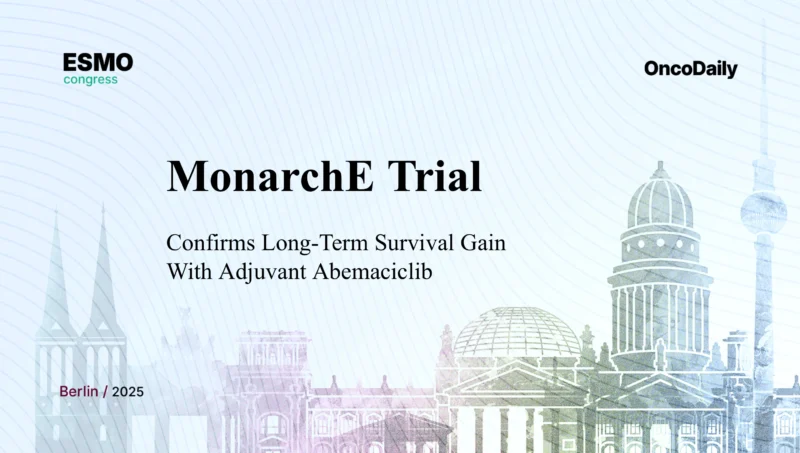At the ESMO Congress 2025 in Berlin, researchers from Marengo Therapeutics presented new data from the ongoing Phase 2 expansion of the START-001 trial (NCT05592626), evaluating invikafusp alfa (STAR0602)—a first-in-class, selective dual T-cell agonist targeting Vβ6/10 TCRs—in patients with immune-checkpoint-blockade (ICB)-resistant, antigen-rich solid tumors.
The latest results confirmed durable clinical activity across multiple tumor types, including colorectal and lung cancer, supporting invikafusp’s potential to overcome ICB resistance and introducing a new class of immuno-oncology backbone therapy.
Background
Invikafusp alfa is a novel, selective dual T-cell agonist designed to expand tumor-infiltrating lymphocytes (TILs) in vivo through engagement of Vβ6/10 T-cell receptors.
In Phase 1 of START-001, the agent demonstrated a disease control rate (DCR) of 63% and an objective response rate (ORR) of 20% at the optimal biological dose (OBD 0.08–0.12 mg/kg) across multiple TMB-high (TMB-H) tumors, including confirmed partial responses in microsatellite-stable (MSS) TMB-H colorectal cancer.
These encouraging findings led to U.S. FDA Fast Track Designation for invikafusp alfa in TMB-H CRC, paving the way for the current Phase 2 expansion.
Methods
The ongoing Phase 2 expansion includes patients with TMB-H or MSI-H solid tumors, divided into three cohorts:
- Tissue-agnostic TMB-H,
- Tissue-agnostic MSI-H, and
- Colorectal cancer (CRC).
All patients receive invikafusp alfa 0.08 mg/kg intravenously every two weeks (Q2W) as monotherapy until disease progression or unacceptable toxicity.
The trial evaluates objective response, disease control, safety, and pharmacodynamic correlates such as Vβ6/10 T-cell expansion.
Results
As of June 30, 2025, 48 patients were enrolled (36 TMB-H, 7 MSI-H, and 5 both), representing 19 different tumor types; 31% had received ≥4 prior lines of therapy.
Among 29 evaluable patients,
- 52% (15/29) experienced target-lesion reduction;
- 21% (6/29) achieved confirmed partial responses; and
62% (18/29) had stable disease, for a disease-control rate of 83% per RECIST.\
- Responses occurred in CRC, gastroesophageal, gastric, NSCLC (PD-L1–negative and PD-L1 >50%), and head-and-neck squamous cell carcinoma.
Additional tumor regression was seen in nine other patients, including CRC, NSCLC, cervical, ovarian, anal, HNSCC, and prostate cancer.
Safety remained consistent with Phase 1, with low-grade cytokine-release syndrome (CRS) as the most common TEAE, well-controlled with supportive care.
Nanostring analyses of PBMCs and paired tumor biopsies confirmed robust expansion of Vβ6/10 T cells, validating the agent’s mechanism of action independent of tumor type.
Conclusions
Invikafusp alfa (STAR0602), a first-in-class dual T-cell agonist, demonstrated clinically meaningful anti-tumor activity and manageable safety in patients with TMB-H solid tumors previously resistant to ICB therapy.
The consistent pattern of response across multiple tumor types—including CRC and NSCLC—supports its potential as a new immunotherapy backbone option for antigen-rich, ICB-refractory cancers.
The Phase 2 expansion of START-001 remains ongoing to further evaluate efficacy and biomarker-driven patient selection.
You Can Also Read monarchE Trial at ESMO 2025: Adjuvant Abemaciclib Plus Endocrine Therapy Improves Overall Survival in High-Risk HR+, HER2− Early Breast Cancer by OncoDaily

You Can Read Full Abstract Here


